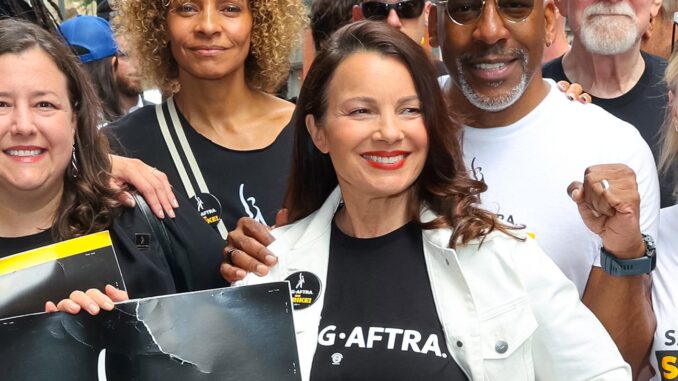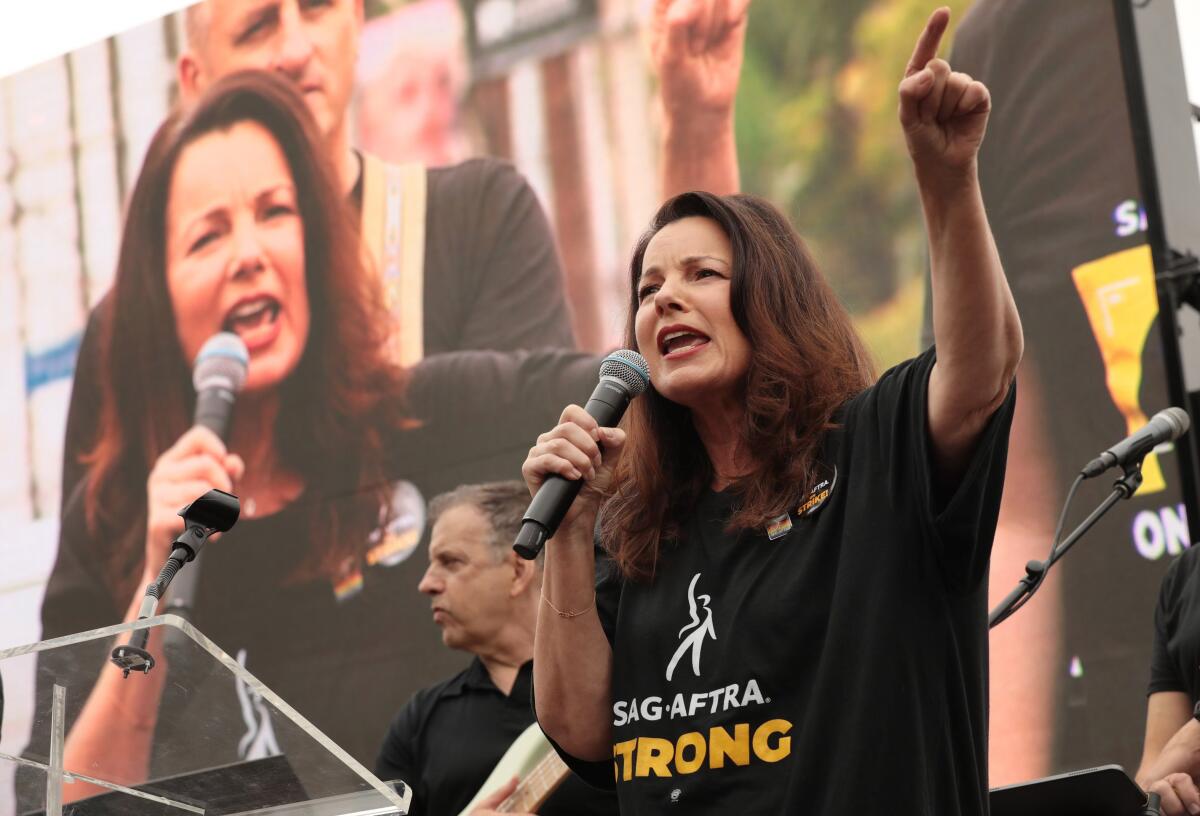
Fran Drescher is exiting the stage as president of SAG-AFTRA after a consequential tenure in which she led the union’s 118-day strike against the major studios.
But one of her key achievements from the 2023 strike remains incomplete. The Streaming Bonus Distribution Fund — sometimes called the “Fran Fund” — was intended to spread the wealth of the streaming era across the membership.
It has yet to distribute a penny. It’s also unclear how much money it will dole out, to whom and on what basis.
“The streaming fund is still a mystery,” says Chuck Slavin, a dissident candidate running to replace Drescher.
Streaming residuals are just one of several pieces of unfinished business left over from the historic
strike. The union got a “success bonus” for the most-watched streaming shows; 75% goes to the actors on those shows and 25% to the fund. But many within the union still say that is not nearly enough to replace traditional broadcast residuals.
Sean Astin was a member of the 2023 negotiating committee, and is running for president on the slate of the Coalition, an alliance of factions within the union. On its website, the Coalition downplays the streaming bonus, saying it cannot be seen as a replacement for “real, ongoing compensation.”
In an interview, Astin says the union was able to “plant a flag” on the issue, but will be looking to improve the terms in next year’s negotiations. As for the fund, he says the members deserve answers.
“I understand the controversy,” he says. “The union has to explain to our members exactly what it is and exactly who qualifies for it and exactly when they’re going to get it.”
The union will also be looking to address health and pension issues, a flash point ever since thousands of retirees were kicked off the health plan in 2020, as well as protections against artificial intelligence.
The strike scrambled the union’s traditional political divisions. Two factions — Membership First and Unite for Strength — vied for power for two decades. But in 2023, they united behind Drescher, who won overwhelmingly.

Astin’s coalition carries that alliance forward, and also includes many members who were unaffiliated. Slavin, who opposed Drescher’s reelection, represents a variety of dissenting voices.
“They are agents of the status quo,” he says. “We are the reformers.”
Slavin voted against the contract that ended the 2023 strike, believing the union should have gotten more. Astin has defended the deal while acknowledging that more work needs to be done.
“I want our members to focus on two things: the gains we made and what we need next,” Astin says.
Since the strike, the industry has been mired in a slowdown that has made the strike seem almost like a distant memory. The union has turned much of its focus to advocating for production incentives to keep jobs in the U.S. There doesn’t appear to be much appetite for another strike in the near term.
“The absolute No. 1 focus on everybody’s minds is the contraction and getting everyone back to work,” Astin says.
